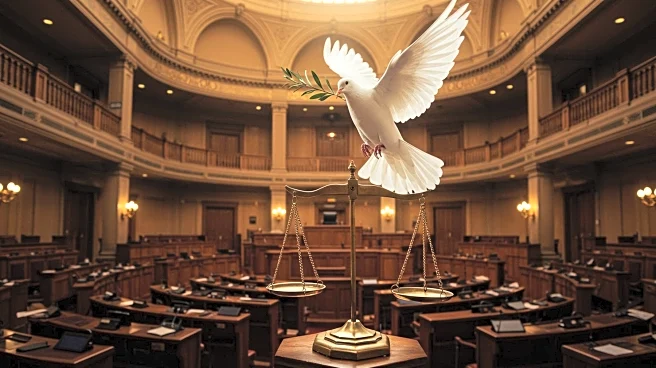What's Happening?
Peter Hain, a member of the Labour Party in the House of Lords, has expressed his opposition to the proscription of Palestine Action, a protest group. In a recent speech, Hain argued that the suffragettes, known for their militant tactics in the early 20th century, would have faced similar proscription due to their property damage activities. Hain's comments highlight a debate over the legitimacy and boundaries of protest actions, drawing historical parallels to emphasize his point. The discussion arises amidst broader conversations about the limits of protest and the legal ramifications for groups like Palestine Action, which have been involved in direct action campaigns.
Why It's Important?
The debate over the proscription of protest groups like Palestine Action raises significant questions about civil liberties and the right to protest. By comparing the group to the suffragettes, Hain underscores the historical importance of protest movements in effecting social change. This comparison suggests that current legal actions against protest groups could stifle legitimate dissent and activism. The outcome of this debate could influence future policies on protest rights and the legal treatment of activist groups, impacting how social movements operate within the legal framework.
What's Next?
The discussion around the proscription of Palestine Action is likely to continue, with potential implications for other activist groups. Legal and political stakeholders may engage in further debates to define the boundaries of acceptable protest. This could lead to legislative reviews or changes in how protest activities are regulated. Activist groups and civil society organizations may also respond by advocating for clearer protections for protest rights, potentially influencing public opinion and policy decisions.
Beyond the Headlines
The comparison to the suffragettes highlights the ethical and historical dimensions of protest. It raises questions about how society values different forms of activism and the role of protest in democratic societies. This debate could lead to a reevaluation of how historical protest movements are perceived and their relevance to contemporary activism.









